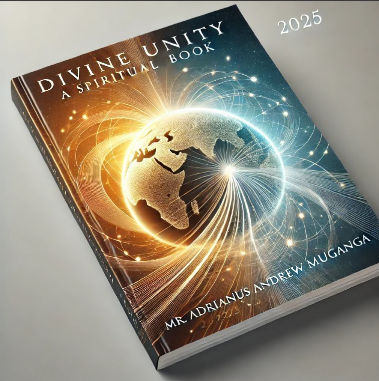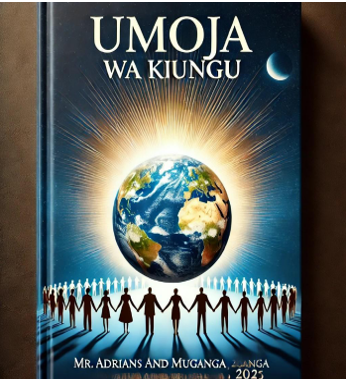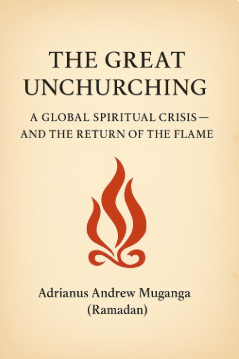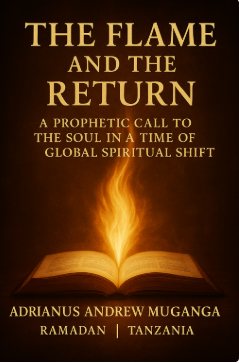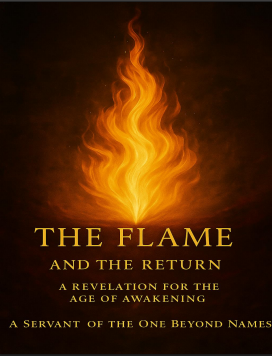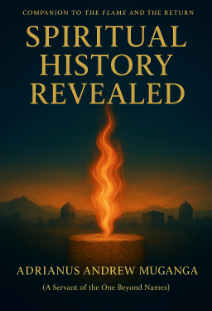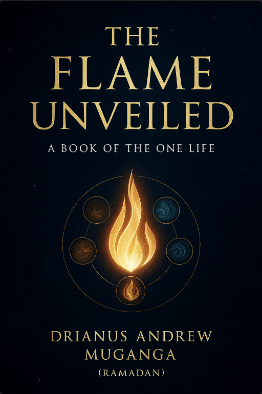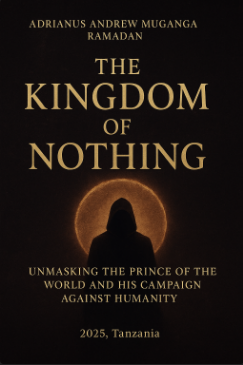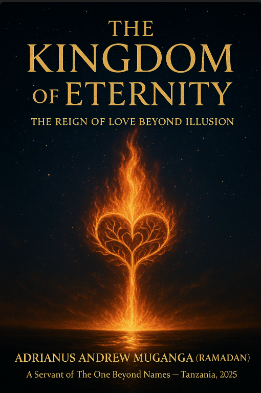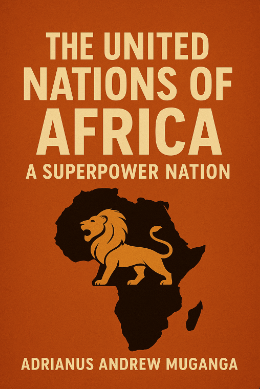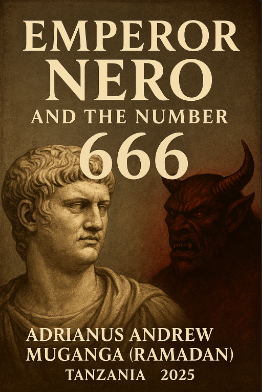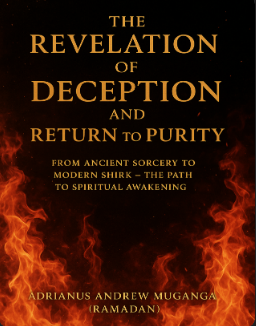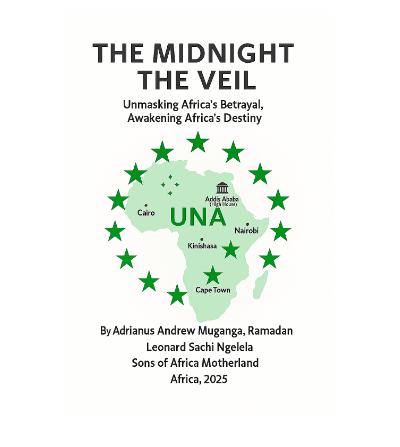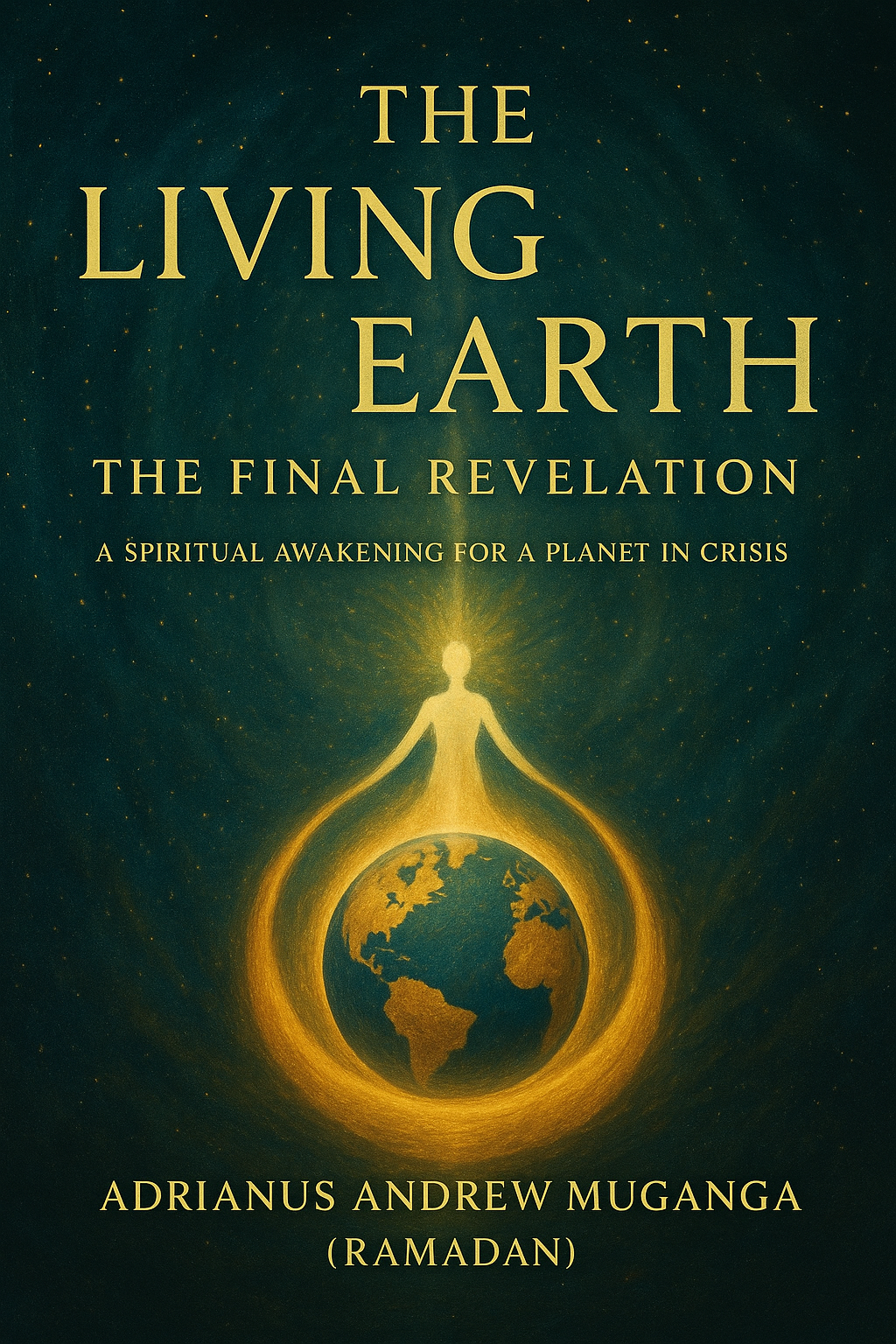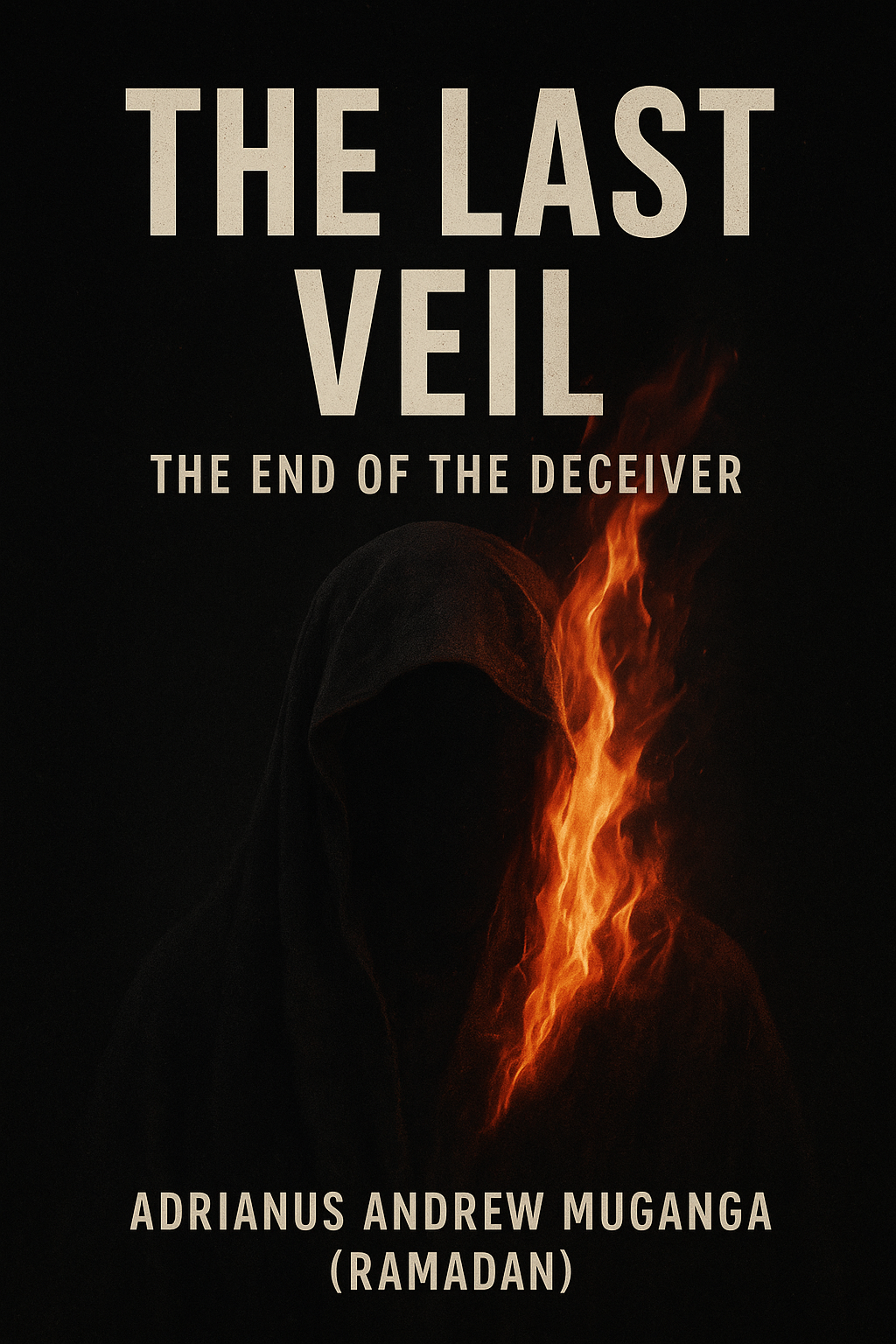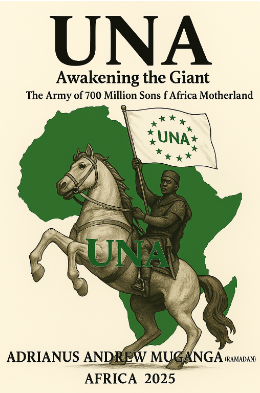
UNA: Awakening the Giant — The Army of 700 Million Sons of Africa Motherland.
Subtitle: A Prophetic Call To Unity, Dignity, And The Rise Of A United Africa
Author: Adrianus Muganga
UNA: Awakening the Giant — The Army of 700 Million Sons of Africa Motherland is a prophetic manifesto by Adrianus Andrew Muganga (Ramadan), calling Africa’s youth to unity, dignity, and renewal. As the final volume in the UNA trilogy, it exposes the lies of aid, debt, and division while declaring Africa is not poor but plundered. Muganga portrays the continent’s 700 million young people as a vast, untapped army of builders, inventors, farmers, teachers, and leaders destined to rise as one. Blending history, prophecy, and passionate truth, the book confronts corrupt leadership, unmasks global exploitation, and lays out a bold blueprint for the United Nations of Africa: one passport, one currency, one parliament, one army, one destiny. More than a book, it is a trumpet of awakening and a covenant of action. This work challenges every reader to not just imagine Africa’s renewal but to embody it.
Keywords for this book
You can only order 1 ebook at a time
Book summary
UNA: Awakening the Giant — The Army of 700 Million Sons of Africa Motherland Adrianus Andrew Muganga (Ramadan) delivers a prophetic and impassioned manifesto for Africa’s destiny in UNA: Awakening the Giant. This book, the final volume in a trilogy that began with The United Nations of Africa (UNA) and continued with The Midnight / The Veil, is not merely literature but a call to action. It summons Africa’s 700 million youth to rise as a united force, to reclaim the dignity of their Motherland, and to build a future that cannot be delayed. The Central Vision At its core, the book presents the dream of the United Nations of Africa (UNA) — not as an abstract idea or political slogan, but as the only viable solution to Africa’s centuries of exploitation, division, and betrayal. Muganga portrays UNA as both prophecy and blueprint: a single passport, one currency, one parliament, one army, and one destiny. The vision is not to be realized in a distant future but in the urgency of now. The title’s “Giant” is Africa itself — vast, wealthy, youthful, and powerful — but long divided into 55 fragments and lulled into silence by systems of aid, debt, and corruption. The book’s mission is to awaken this Giant and summon the youth to see themselves not as victims of history but as authors of a new chapter. Part I: The Cry of Midnight The first part of the book sets the stage by describing Africa’s long midnight — a period marked by lies, exploitation, and systemic injustice. Muganga explains that colonialism never truly ended; it merely changed clothes. What were once chains and whips have become contracts, loans, and global governance. Aid is described as a leash, debt as a prison, and division as the master’s chain that keeps Africa fragmented and weak. The book highlights the hypocrisy of global systems such as the IMF and the United Nations, exposing how Africa — despite its 1.55 billion people — holds only 5% of IMF voting power, while single nations like the United States command far more. Leaders are criticized as modern Pharaohs, serving foreign masters while enslaving their own people with corruption and pride. The “Cry of Midnight” reaches a climax in the events of September 2025, when African representatives, led by voices such as President William Ruto, openly confronted the injustice of global governance at the United Nations General Assembly. Muganga interprets this moment not just as political rhetoric but as prophecy — the tearing of the veil that had long concealed Africa’s strength. Part II: The Fire in Our Bones From despair, the book shifts to hope. Muganga argues that despite centuries of plunder, Africa’s true wealth remains: its people, its resources, and its unbreakable spirit. He redefines Africa not as “poor” but as “plundered.” The land’s gold, oil, diamonds, uranium, and fertile soil continue to feed the world, while Africa itself is told it is weak. The book emphasizes the unique power of Africa’s youth, the youngest population in the world. With over 700 million under 25, and projected to exceed 1 billion by 2050, Africa’s youth represent not a burden, but the greatest potential force for change. Muganga portrays them as an army — not one of guns alone, but of inventors, engineers, farmers, coders, teachers, and visionaries who can reshape the destiny of their continent. Here, Muganga invokes both biblical and African examples of leaders raised from obscurity to fulfill destiny — Moses, David, Joseph, Sankara, Nkrumah, Lumumba, and Ibrahim Traoré. He argues that the next leader of Africa’s awakening, whom he calls the Horseman of Destiny, will not be chosen by politics but by divine calling. This leader’s mission is not to rule over tribes but to awaken UNA. Part III: The Giant Awakens The third part of the book presents the practical blueprint of UNA — the dream made tangible. Muganga outlines what UNA would look like in reality: One Passport: A single African identity that removes borders and creates true freedom of movement. One Currency: Economic independence through a shared monetary system, ending reliance on IMF loans and exploitative financial structures. One Parliament: A continental legislative body representing 1.55 billion Africans, the largest democratic assembly on earth. One Army: A unified defense force to protect Africa’s sovereignty, resources, and people. One High House in Addis Ababa: Serving as the headquarters of UNA, with zones in Cairo, Kinshasa, Nairobi, Odaha, and Cape Town to balance regional governance. This vision is framed not as a political project alone, but as a covenant — a sacred responsibility to honor the Motherland and future generations. Muganga urges youth not to wait for permission from leaders or foreign powers but to rise as builders of UNA in their daily lives, from farming and engineering to teaching and defending. Part IV: The Dawn of Renewal The final section of the book looks beyond Africa to the collapse of empires. Muganga reminds readers that Babylon, Rome, Greece, and Egypt all declared themselves eternal, yet all collapsed into dust. Today’s powers — the United States, Europe, China, Russia — also show signs of instability. In contrast, Africa, though wounded, is eternal. He describes the dawn of a global renewal, with Africa playing a central role. As old empires fall, Africa’s rise is not just for itself but for humanity. It is a vision of justice, equality, and a new world order rooted in dignity rather than exploitation. The closing chapters and epilogue reinforce the urgency: UNA is not tomorrow, UNA is now. The youth are urged to recognize themselves as the army of destiny, to break silence, and to live as the embodiment of the awakening Giant. Style and Tone Muganga writes not as a politician or academic but as a prophetic messenger. His tone is fiery, poetic, and urgent. The book is filled with repetition for emphasis (“Africa is not poor, Africa is plundered”), historical lessons, biblical parallels, and passionate declarations. It is meant to disturb, provoke, and inspire — never to be read passively, but to be lived as a covenant. Why This Book Matters UNA: Awakening the Giant arrives at a time when Africa faces both crisis and opportunity. Youth unemployment, migration, corruption, and global exploitation remain deep wounds. Yet the demographic strength, resource wealth, and rising voices of young Africans present unprecedented potential. This book argues that the solution lies not in aid, charity, or waiting for reform from global institutions, but in unity. Only through a United Nations of Africa can the continent reclaim its wealth, dignity, and destiny. Muganga’s message is both timely and timeless: Africa’s awakening is inevitable. The only question is whether this generation will rise to fulfill it. Conclusion UNA: Awakening the Giant — The Army of 700 Million Sons of Africa Motherland is more than a book. It is a manifesto, a prophecy, and a trumpet. It calls Africa’s youth to remember who they are, to tear down the chains of division, and to rise as one. In the words of Muganga himself: “Do not wait for permission. Do not wait for leaders to agree. Do not wait for aid, handouts, or foreign approval. You are UNA. UNA is you. The Giant is awake.”
